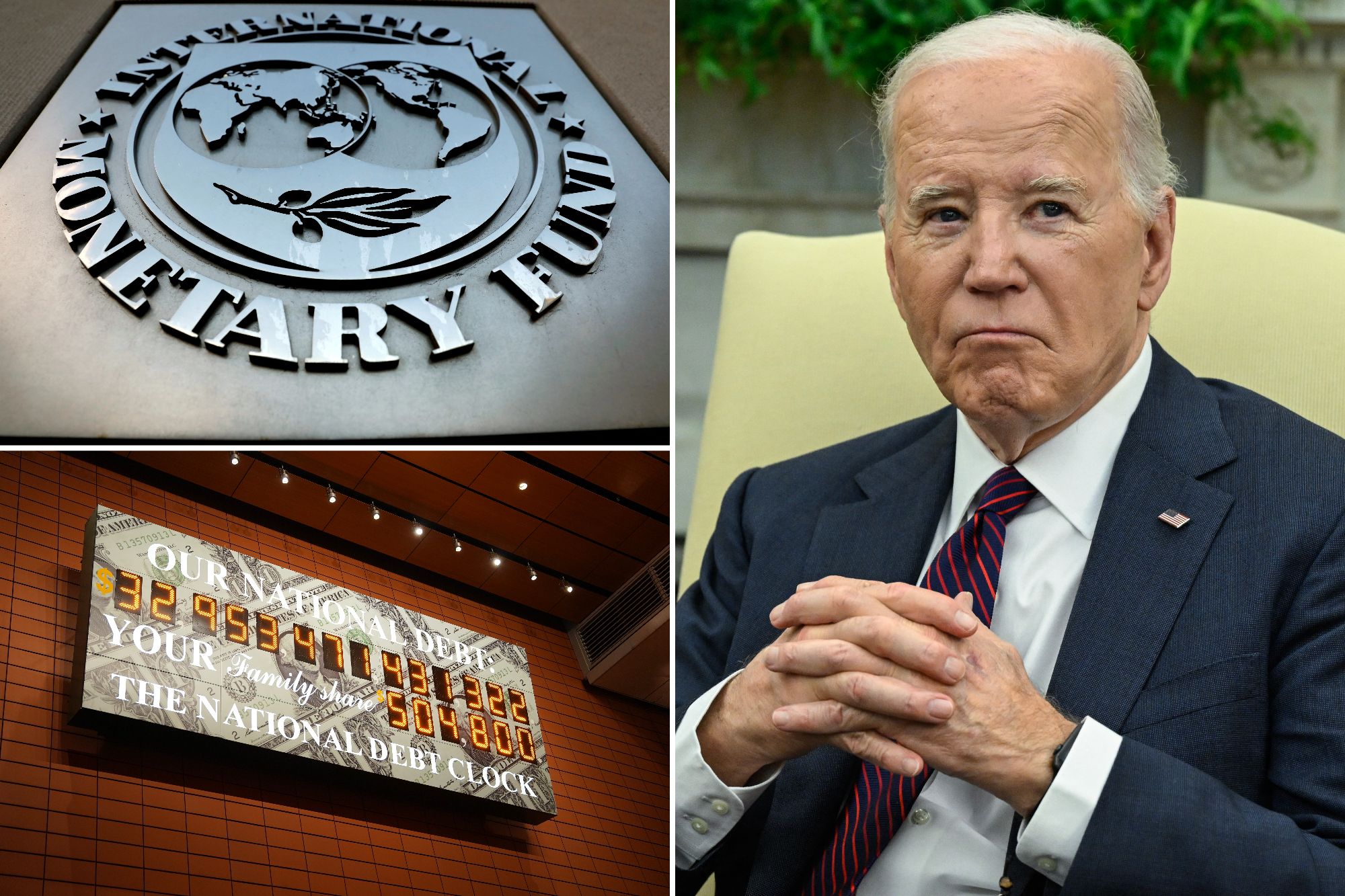
The International Monetary Fund sounded the alarm on the Biden administration’s rampant spending as “out of line with what is needed for long-term fiscal stability.”
The IMF’s latest forecast from the IMF — a group tasked with fighting financial crises worldwide — warned that the ballooning national debt and the fiscal deficit threatened to exacerbate sky-high levels of inflation while posing a long-term risk to the global economy.
The IMF noted in its forecast that the US federal budget deficit grew from $1.4 trillion in fiscal 2022 to $1.7 trillion last year.
The debt held by the public, which surpassed $34 trillion, is on course to exceed $45.7 trillion within a decade — which is roughly 114% of the gross domestic product, according to projections by the Congressional Budget Office.
“Something will have to give,” the IMF warned.
The IMF, a financial agency run under the auspices of the United Nations, praised the US economy for its growth.
Despite rampant inflation, the US economy has continued to add jobs while spending and income have been on the rise. In the fourth quarter of last year, GDP rose at an annual rate of 3.3%. In 2023, the US economy added 2.7 million jobs.
Nevertheless, the IMF said that the Biden administration’s spending is cause for concern.
“The exceptional recent performance of the United States is certainly impressive and a major driver of global growth,” the IMF said. “But it reflects strong demand factors as well, including a fiscal stance that is out of line with long-term fiscal sustainability.”
Since entering office, Biden has spent trillions on COVID relief as well as infrastructure. The US has also spent billions in helping Ukraine fight off the Russian invasion.
But the Biden administration said that tax cuts signed into law by former President Donald Trump are to blame for ballooning debt.
“The Trump tax cuts added $2 trillion to the debt with unpaid giveaways skewed to the wealthy and big corporations, and now Congressional Republicans are proposing another $5.5 trillion in tax cuts skewed to the rich, while raising taxes on millions of middle-class families,” Michael Kikukawa, a White House spokesperson, told The Post.
“President Biden is fighting to lower the deficit by $3 trillion by making the richest Americans and big corporations pay their fair share—all while cutting taxes for the middle class and never raising taxes on households earning less than $400,000.”
The US is an outlier among the major industrial economies. Europe’s economy failed to expand by the end of last year.
The 20 countries that use the euro as a currency have not shown significant growth since the third quarter of 2022 — and even then the economy grew at just 0.5%. The eurozone grew 0.5% for the full year in 2023, while the US grew 2.5%.
China, the world’s second largest economy, said late Monday it grew a surprisingly strong 5.3% despite an ongoing property crisis. Russia, which remains mired in its invasion of Ukraine, has managed to withstand Western sanctions. Its economy is projected to grow at a 3.2% clip.














